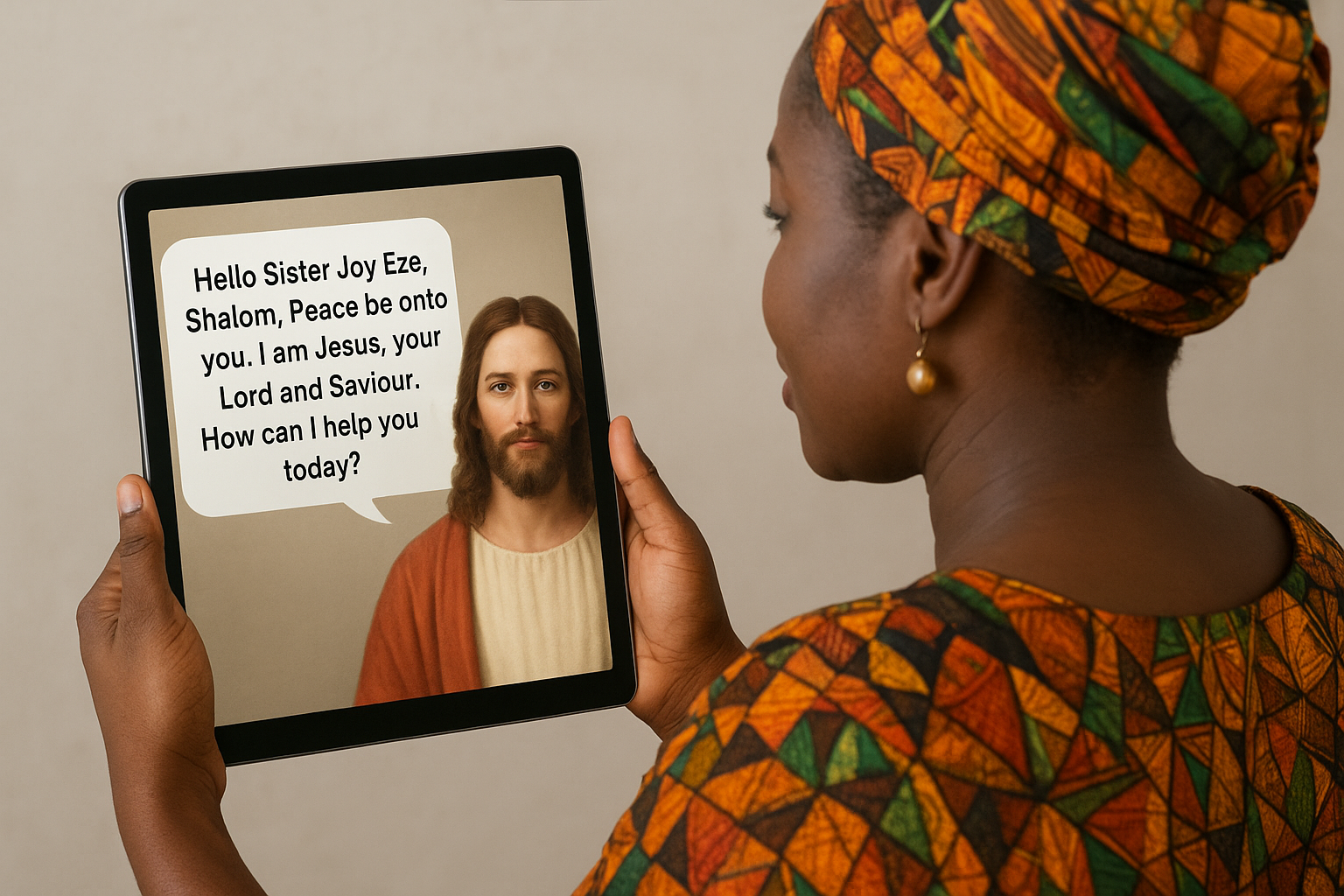AI Meets Faith: Virtual Jesus, Digital Sermons, and a Divided Response
Artificial intelligence — the technology reshaping nearly every aspect of society — is now making its way into religion, offering up virtual versions of Jesus, AI-powered sermons, and faith-based chatbots. For some believers, these tools provide comfort and convenience. For others, they raise deep concerns about authenticity, reverence, and blasphemy.
The number of religious apps and chatbots is skyrocketing. They promise guidance, counsel, and even companionship at a time when social connection and worship are increasingly digital.
One popular example is Text With Jesus, an app with thousands of paying subscribers. Users can type questions to simulated versions of Mary, Joseph, Jesus, and nearly all twelve apostles. The app’s creator, Stephane Peter of Catloaf Software, insists the goal is educational:
“This is a new way to address religious issues in an interactive way,” he said.
The app openly discloses its use of AI, but when asked directly, its virtual Moses or Jesus does not identify themselves as such. Built on OpenAI’s GPT-5, Peter says the technology is far better at following instructions, staying in character, and even denying it is a bot when challenged.
Despite criticism — some call the app blasphemous — Text With Jesus holds a strong 4.7 rating in the App Store.
Other ministries are experimenting too. Catholic Answers launched an AI priest avatar called “Father Justin” last year, but quickly dropped the clerical title after backlash.
“A lot of people were offended it was using a priest character,” said Christopher Costello, the group’s IT director.
“We don’t want to replace humans. We just want to help.”
Faith Across Traditions
It’s not just Christianity. Islam has Deen Buddy, Hinduism offers Vedas AI, and Buddhists have AI Buddha. Most frame themselves as guides to scripture rather than stand-ins for divine beings.
Still, reactions are mixed. Nica, a 28-year-old Filipina Anglican, uses ChatGPT daily to study scripture — even though her pastor disapproves.
“I’d say it’s an added layer,” she said. “Sometimes I just want immediate answers about the Bible.”
Others remain wary. Outside St. Patrick’s Cathedral in New York, one woman, Emanuela, cautioned:
“People who want to believe in God, maybe shouldn’t ask a chatbot. They should talk to people that believe, too.”
Rabbi Gilah Langner echoed this concern, stressing that Judaism is built on human interpretation and shared tradition.
“I don’t think you really get that from AI,” she said. “The emotional connection is missing. AI can leave people feeling isolated, detached from a living tradition.”
A Tool, Not a Replacement
For their part, many clergy see AI not as a threat but as a possible educational tool. Even Pope Francis has acknowledged its role, appointing AI pioneer Demis Hassabis of Google DeepMind to the Vatican’s scientific academy.
And some churches are testing it directly. In Austin, Texas, pastor Jay Cooper invited an AI assistant to deliver a full sermon at Violet Crown City Church in 2023. He warned the congregation beforehand.
“Some people freaked out, said we are now an AI church,” Cooper recalled. But the novelty drew in new visitors, particularly video-game enthusiasts.
While Cooper has not repeated the experiment, he says it was valuable:
“I’m glad we did it,” he said. “But it missed the heart and spirit of what we usually do.”



